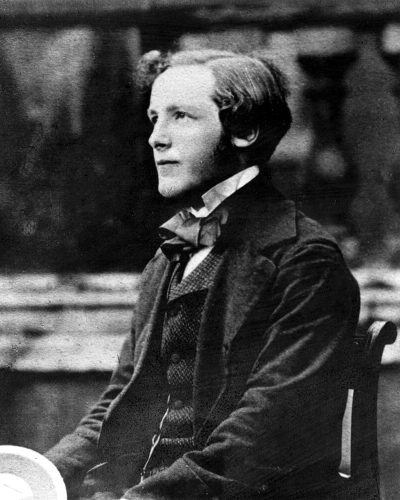
8 King’s Parade, 7th March 1852.
I have now nobody that I see too much of, though I have got several new acquaintances, and improved several old ones. I find nothing gives one greater inertia than knowing a good many men at a time, who do not know each other intimately. N.B. — Inertia, not = laziness, but mass; i.e. if one knows a man, he forms an idea of your character, and treats you accordingly. If one knows a company of men, they are strong in union, and overawe the individual. If one man only, we become mutual tyrants. If several independently, every one plays the part of Dr. Watt’s celebrated “Busy Bee,” and by mixing according to every possible combination hit out the best results. Now you see I am theorising again and preaching as of old; but the fact is, I am always laying plans and preaching to myself till I seek for some one to whom I may disgorge without fear of an immediate reply. Now, my great plan, which was conceived of old, and quickens and kicks periodically, and is continually making itself more obtrusive, is a plan of Search and Recovery, or Revision and Correction, or Inquisition and Execution, etc. The Rule of the Plan is to let nothing be wilfully left unexamined. Nothing is to be holy ground consecrated to Stationary Title, whether positive or negative. All fallow land is to be ploughed up, and a regular system of rotation followed. All creatures as agents or as patients are to be pressed into the service, which is never to be willingly suspended till nothing more remains to be done; i.e. till A.D. +∞. The part of the rule which respects self-improvement by means of others is:—Never hide anything, be it weed or no, nor seem to wish it hidden. So shall all men passing by pluck up the weeds and brandish them in your face, or at least display them for your inspection (especially if you make no secret of your intention to do likewise). (I speak not here literally of the case of those who revise each other’s faults every night, and quarrel before the month is out, but you did not so misunderstand me.) Again I assert the Right of Trespass on any plot of Holy Ground which any man has set apart (as the rustics did their Gude-man’s Rig) to the power of Darkness. Such places must be exorcised and desecrated till they become fruitful herds. Again, if the holder of such property refuse admission to the exorcist, he ipso facto admits that it is consecrated, and that he fears the power of Darkness. It may be that no such darkness really broods over the place, and that the man has got a habit of shutting his eyes in that field, which makes him think so.
Now I am convinced that no one but a Christian can actually purge his land of these holy spots. Any one may profess that he has none, but something will sooner or later occur to every one to show him that part of his ground is not open to the public. Intrusions on this are resented, and so its existence is demonstrated. Now, I do not say that no Christians have enclosed places of this sort. Many have a great deal, and every one has some. No one can be sure of all being open till all has been examined by competent persons, which is the work, as I said before, of eternity. But there are extensive and important tracts in the territory of the Scoffer, the Pantheist, the Quietist, Formalist, Dogmatist, Sensualist, and the rest, which are openly and solemnly Tabooed, as the Polynesians say, and are not to be spoken of without sacrilege.
Christianity—that is, the religion of the Bible—is the only scheme or form of belief which disavows any possessions on such a tenure. Here alone all is free. You may fly to the ends of the world and find no God but the Author of Salvation. You may search the Scriptures and not find a text to stop you in your explorations.
You may read all History and be compelled to wonder but not to doubt.
Compare the God of Abraham, Isaac, and Jacob with the God of the Prophets and the God of the Apostles, and however the Pantheist may contrast the God of Nature with the “Dark Hebrew God,” you will find them much liker each other than either like his.
The Old Testament and the Mosaic Law and Judaism are commonly supposed to be “Tabooed” by the orthodox. Sceptics pretend to have read them, and have found certain witty objections and composed several transcendental arguments against “Hebrew O’ Clo’,” which too many of the orthodox unread admit, and shut up the subject as haunted. But a Candle is coming to drive out all Ghosts and Bugbears. Let us all follow the Light.
James Clark Maxwell (1831-1879)
Reprinted by permission of
Sonnet Software, Inc.
